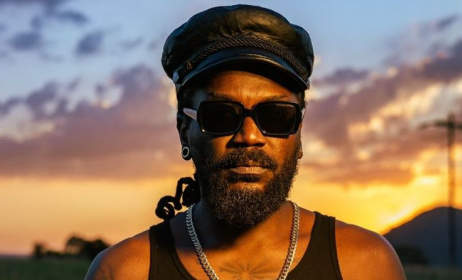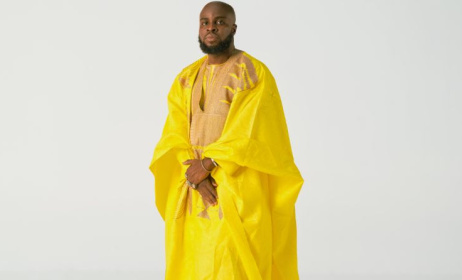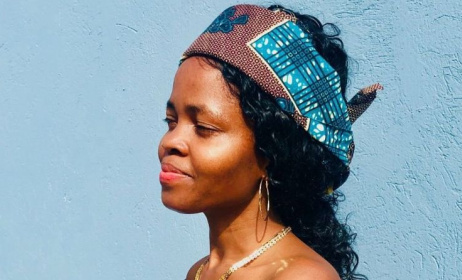Three takeaways from Stevie Wonder's plan to ditch the US for Ghana
“I wanna see this nation smile again,” Stevie Wonder told Oprah Winfrey calmly and matter-of-factly in a recent interview. “And I want to see it before I move to Ghana because I’m going to do that.”
 Stevie Wonder.
Stevie Wonder.
“You’re going to permanently move to Ghana?” Winfrey asked the famous singer-songwriter and producer, to make doubly sure.
“I am,” Wonder replied with the same conviction. “I don’t want to see my children’s children’s children have to say, ‘Oh please’, like me. ‘Please respect me, please know that I am important, please value me.’ What is that?”
A Michigan native, Wonder learned to play the piano, drums and harmonica by his ninth birthday and signed to Motown Records in 1961. The musician is the recipient of 25 Grammy Awards who’s behind global hits, including ‘I Just Called to Say I Love You’ and ‘You Are the Sunshine of My Life’, among others.
Wonder's announcement of his plan to relocate has been greeted with open arms, at least in Africa. It also reiterates a longstanding desire of Wonder who, as far back as 1994, had ambitions to relocate to West Africa. The yearning was spurred by his perception that Ghana had “more of a sense of community” than the US.
Here are three implications of Wonder’s plans to immigrate:
African solidarity against racial injustice
The premise of Wonder’s decision is distressing. Although the US is branded as the land of the free and the home of the brave, it is constantly criticised for its approach to civil rights and racism, particularly against communities of colour.
To Wonder, the idea of having to see his kids begging for validation as a result of their complexion, in a country that is supposed to be home, is no longer acceptable.
Ghana has positioned itself as a leading African ally constantly showing solidarity with African-Americans who experience racism and other forms of injustice. Following George Floyd’s death in May last year, for instance, a memorial was held in Accra. President Nana Akufo-Addo also condemned Floyd’s killing. “We stand with our kith and kin in America in these difficult and trying times, and we hope that the unfortunate, tragic death of George Floyd will inspire a lasting change in how America confronts head-on the problems of hate and racism,” Akufo-Addo said.
To the African diaspora, such gestures about Ghana, which Wonder has lent his eyes to since 1994, offer a sense of belonging and identity and perhaps holds valuable lessons for racism and the broader conversation on basic civil rights.
More publicity for the Beyond the Return campaign
Wonder’s relocation heeds Ghana’s call to its diaspora to return home, a campaign that started in 2019 under the banner Year of Return, and served as a commemoration for the 400 years since the first enslaved Africans arrived in the US.
Following the Year of Return, the country attracted about 1.5 million tourists and realised a significant boost to its economy. Its tourism ministry has also launched Beyond the Return, a 10-year initiative that will highlight the nation as a global tourism and foreign investment destination.
A key component to the success of both initiatives has been the exodus of global celebrities, notably US rappers T.I and Ludacris, television presenter Steve Harvey and Barbados Prime Minister Mia Mottley.
Since gaining its independence in 1957, Ghana has welcomed African-American such as Martin Luther King Jr, W.E.B Du Bois, Maya Angelou, Muhammad Ali, Malcolm X and Barack Obama, among others, creating the perception that the country is a beacon of emancipation.
Because of his stature, Wonder’s announcement recasts the spotlight on Ghana as the bastion of repatriation among the black race and a giant leap forward in the campaign for Beyond the Return, which has taken a hit due to COVID-19.
Increase value in the creative sector
Apart from publicity, Wonder’s immigration plans have implications for the country’s thriving creative sector, which the country enjoys and Wonder can attest to, having worked with Ghanaian multi-instrumentalist, record producer and bandleader Kwame Yeboah.
From highlife through to Afrobeats and contemporary sounds, Ghana has served as an important point of pilgrimage for musicians across the globe. Wonder’s arrival will spark Ghana’s latest creative renaissance, from his expected musical collaborations with local artists, media and speaking engagements, among others.
A powerful brand like Wonder will bring massive gains to the country's economy, as Fela and Drake have done for their native countries of Nigeria and Canada.


































Comments
Log in or register to post comments